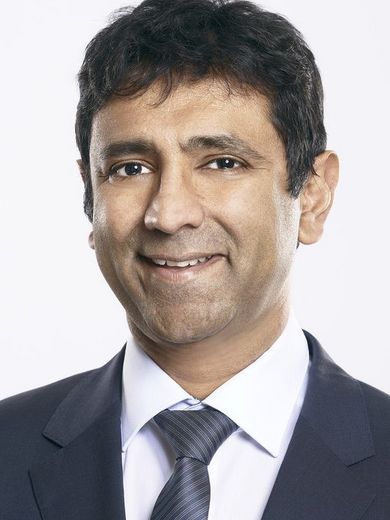
Maren Ehrlichmann, Yuzlem Veiz, Leah Kuhn, and Mayank Golpelwar present their research from the Global-Ready and All-Set projects at the DTX Talks
As part of the DTX research cluster's Wednesday Research series, Maren Ehrlichmann, Yuzlem Veiz, and Leah Kuhn presented their respective research results related to the challenges of German-Asian collaborations. They also provided potential solutions to these challenges. Prof. Dr. Armin Varmaz, the scientific coordinator of the DTX research cluster and Prof. Dr. Mayank Golpelwar, who supervised the researches as part of the GlobalReady & All-Set research projects, moderated the session, which was attended by scientists and practitioners working in the field of international management, from Bremen, Bremerhaven, and Oldenburg in Germany, and from Romania and India.
Following a brief introduction by Mayank Golpelwar, Maren Ehrlichmann outlined the objectives of the research projects All-Set and Global Ready. Project All-Set, aims to develop strategies for better integration of to enhance the integration of international students and professionals into the German workforce, while project Global-Ready aims to prepare German scientists and students through targeted preparations for their visits and stays abroad. Both projects emphasize the importance of cross-cultural understanding and the need for effective conflict management and communication strategies in fostering successful collaborations between German and Global (including Asian) partners. The presentation consisted of 3 parts:
1. Indian Students in Bremen - Challenges & Solutions
Maren Ehrlichamnn discussed the challenges faced by Indian students and professionals in Germany. Key findings from psychometric, participative, and focus group research highlighted bureaucratic hurdles, cultural adaptation, and the need for better integration support. Proposed solutions for better integration of Indian students and professionals included, among others:
Digital visa processes to streamline entry.
Establishment of alumni & support networks for newcomers.
Integrated language courses at universities and structural programs for interactions with German students and professionals
Workshops and events to facilitate cultural exchange and networking.
The emphasis was on collaboration among universities, employers, and organizations to support these initiatives.
2. German-Japanese Cooperation Challenges & Solutions
The analysis of German-Japanese team collaboration by Yuzlem Veiz focused on cultural challenges that arise due to differing work ethics, communication styles, and decision-making processes. Her suggested strategies for overcoming these challenges include:
Developing intercultural training programs.
Encouraging open dialogue to bridge cultural gaps.
Implementing structured team-building activities to foster trust and understanding.
Yuzlem Veiz concluded her presentation with recommendations for enhancing cooperation through mutual respect and adaptability.
3. Germany-Singapore Cooperation Challenges & Solutions
The research by Leah Kuhn examined the unique position of Singapore as a cultural melting pot and its role in facilitating German-Asian partnerships. It highlighted the importance of leveraging Singapore's multicultural environment to enhance collaboration. Key points include:
The need for tailored communication strategies that consider the diverse backgrounds of team members.
The role of technology in bridging communication gaps.
Best practices for managing multicultural teams effectively.
Leah Kuhn concluded her part of the presentation by providing commonalities, which fewer adjustments, and friction points of the Germany-Singapore cooperative interactions, which require interventions for optimizing the effectiveness of such projects.
The discussions which followed included the sharing of experiences by the attendees and the creation of strategies to tackle challenges of global interactions in the metropolitan region Bremen-Oldenburg, especially through the examples presented by the Bremen's Welcome Center, Hochschule Bremen, and International Office of the Hochschule Bremerhaven & Inside Culture Academy.
In response to Professor Dr. Varmaz's query about the malleability or stability of cultures, Professor Schwuchow and Professor Berninhausen presented the current trends in the understanding of culture as a construct.
The participants actively contributed to the presentations and discussions through their inputs to various challenges and queries regarding the dynamics of interactions between Germany and Asia. They included (listed alphabetically, by first names):

Prof. Dr. Armin Varmaz
Professor for Finance
+49 421 5905 4195
Email

Prof. Dr. Mayank Kumar Golpelwar
Intercultural Management und Intercultural Communication
+49 421 5905 4152
Email